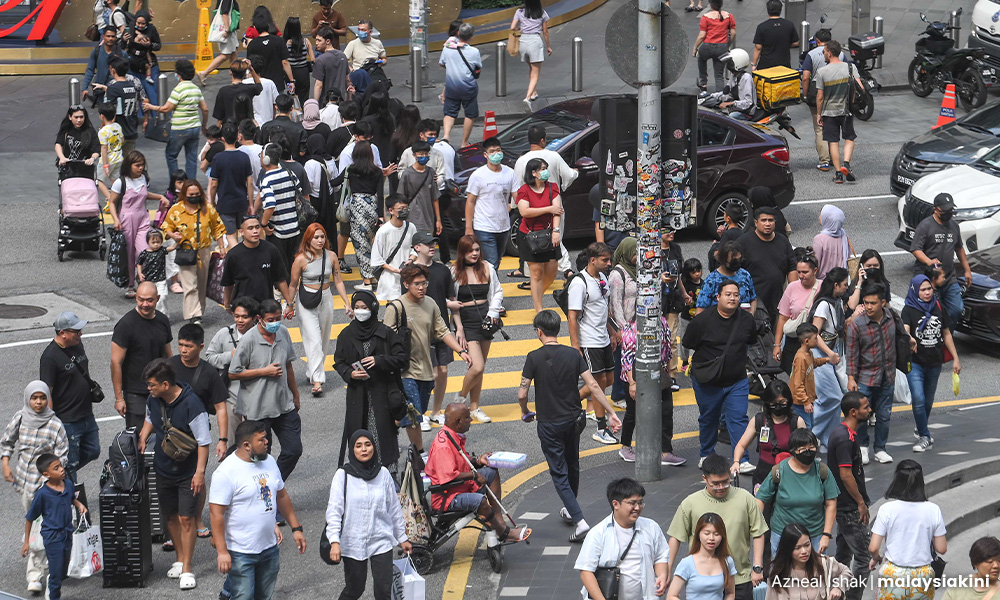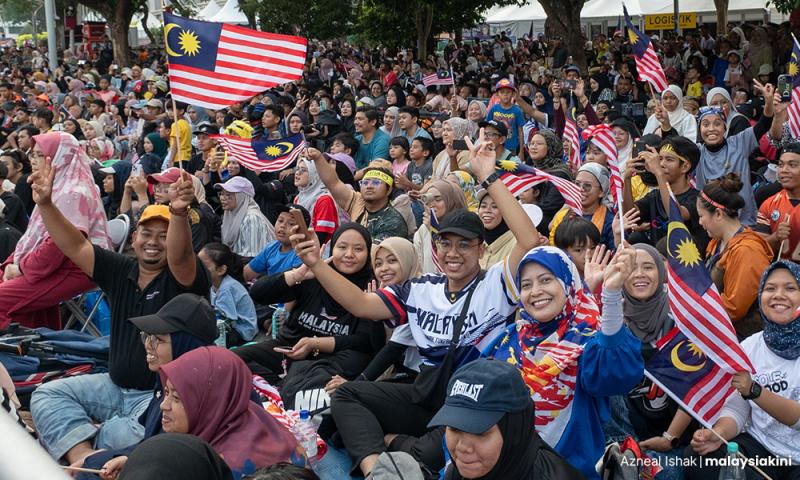My thoughts and opinions about racial and religious relations in Malaysia shift all the time depending on what I read in the media, my interaction with different people and just my general observation of the society around me.
What I can say is that how I feel about it is very fluid. In general, Malaysia is quite divided and polarised. It’s not something that I like to believe, but that is how it is.
For the most part, I feel that our politicians are the ones who create the divide and polarisation in Malaysia. This is most probably by the very fact that our politics are very race-based whereby a majority of our political parties are formed to “protect the interest of their people”.
I’m sure that many Malaysians will agree with me when I say that many of our extremist politicians’ polemics border on hate speech.
So, whenever a politician suddenly starts going on a racial or religious rant, I get annoyed. However, it also convinces me that the division and polarisation in the country are just these politicians spewing rhetoric and that it isn’t a reflection of what the real citizens and ordinary people think, believe and practise in their lives.

But then, there are other times when I feel differently. I teach in a university and recently, I had a conversation with my journalism students about their relationships with their friends. Many admitted to not having friends from other races.
The Chinese students said they didn’t have Malay or Indian friends, and it was the same with the Malay and Indian students. When I asked them if they intentionally only made friends of the same race, they expressed that this wasn’t the case.
They just naturally gravitated towards people who were similar to them, and coincidentally (according to them), these people happened to be from the same race, spoke the same language, went to the same type of schools and celebrated the same festive seasons.
There is hope
This makes me think that maybe racial and religious polarisation does exist among the people. This feeling doesn’t make me feel so good.
Now, I don’t think that these people are intentionally trying to be racist, but subconsciously or not, this still reflects division and polarisation. Something is influencing how they interact with each other and who they want to surround themselves with.
Other times, when I think about my friends and family (for context, I am part Chinese and part Malay), I feel that there is hope. I don’t want to boast, but my family, which consists of Malay and Chinese ethnicities (multireligious too) do get along very well.
I also have friends from different races, and I mean actual friends whom I confide in and spend time with and aren’t just acquaintances.
When this happens, I start thinking that maybe there are many Malaysians like my family and friends. Then I feel a bit more hopeful that Malaysia and Malaysians are okay.
Then again, as I said, my thoughts on this are very fluid depending on what happens around me, and the very fact that my thoughts on this can sway means that there is something wrong in our society that needs to be fixed.
Learn from the survey
This brings me to the recent survey that was done by Invoke for Projek Sama (Project Stability and Accountability).
The general questions revolved around multiculturalism and religious pluralism and how the perception of the country’s administration is influenced by these issues as well. Of course, the findings have caused me to spiral a certain way.
I won’t explain every single result that the survey found because you can just go and read it, but I do want to highlight a few issues that interest me.
First of all, 75 percent of Malay and Chinese respondents and 81 percent of Indian respondents believed that respect for Islam and respect for multiculturalism should go hand in hand. Only 22 percent felt that respect for Islam should take precedence.
Secondly, 67 percent of Malay respondents wanted the government to prohibit harmful comments related to 3R (race, religion and royalty) with 59 percent wanting this to happen without a blanket or complete ban on discussions surrounding 3R.
The trend was similar, albeit lower, for Chinese and Indian respondents. This means that most of us believe that discourse should happen but with respect.

Thirdly, less than half of all respondents (42 percent Malays, 45 percent Chinese and 31 percent Indians) believe that the government and its agencies treat everyone fairly, which means a majority feels that the government does not treat people fairly.
Most of the Malay and Chinese respondents felt that the unfair treatment is more class-based while Indian respondents felt it is race-based.
The reason Projek Sama commissioned the survey is because they were concerned with how ethnic relations and cultural conflicts were deteriorating, which could lead to political instability and more.
I believe that this is an apt survey, and the results can teach us and the government how to improve the situation so that we can be a better and more progressive society.
I hope that Malaysians, from ordinary citizens to social scientists, journalists, educators, politicians and government, can delve into these issues and work towards addressing the racial and religious relations in the country.
I’m sure all of us want a Malaysia that is progressive, multicultural and multireligious where we can all lead the best of lives possible. Personally, I just don’t want to have my feelings swayed around all the time. - Mkini
ZAN AZLEE is a writer, documentary filmmaker, journalist and academic. Visit fatbidin.com to view his work.
The views expressed here are those of the author/contributor and do not necessarily represent the views of MMKtT.




No comments:
Post a Comment
Note: Only a member of this blog may post a comment.